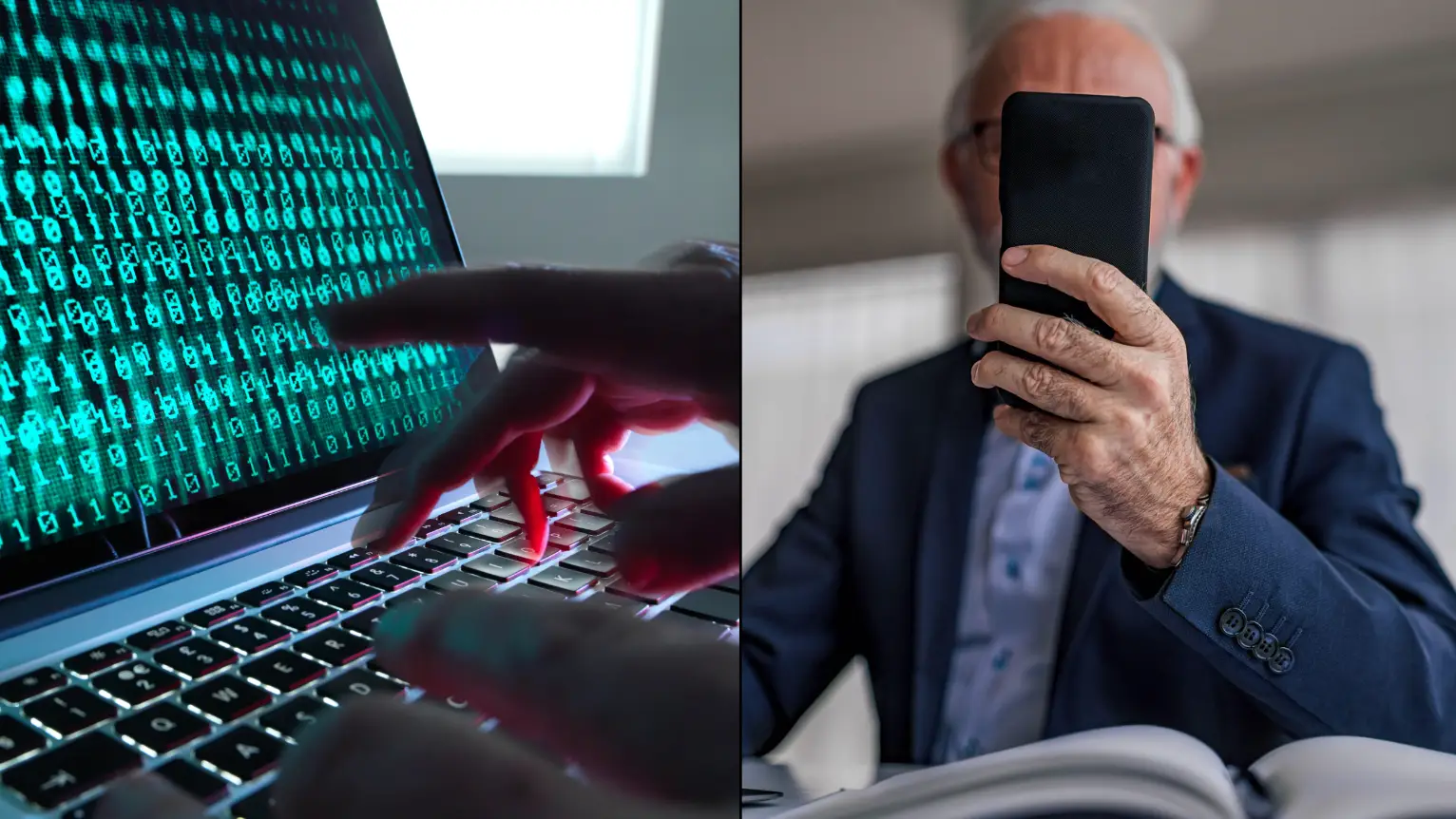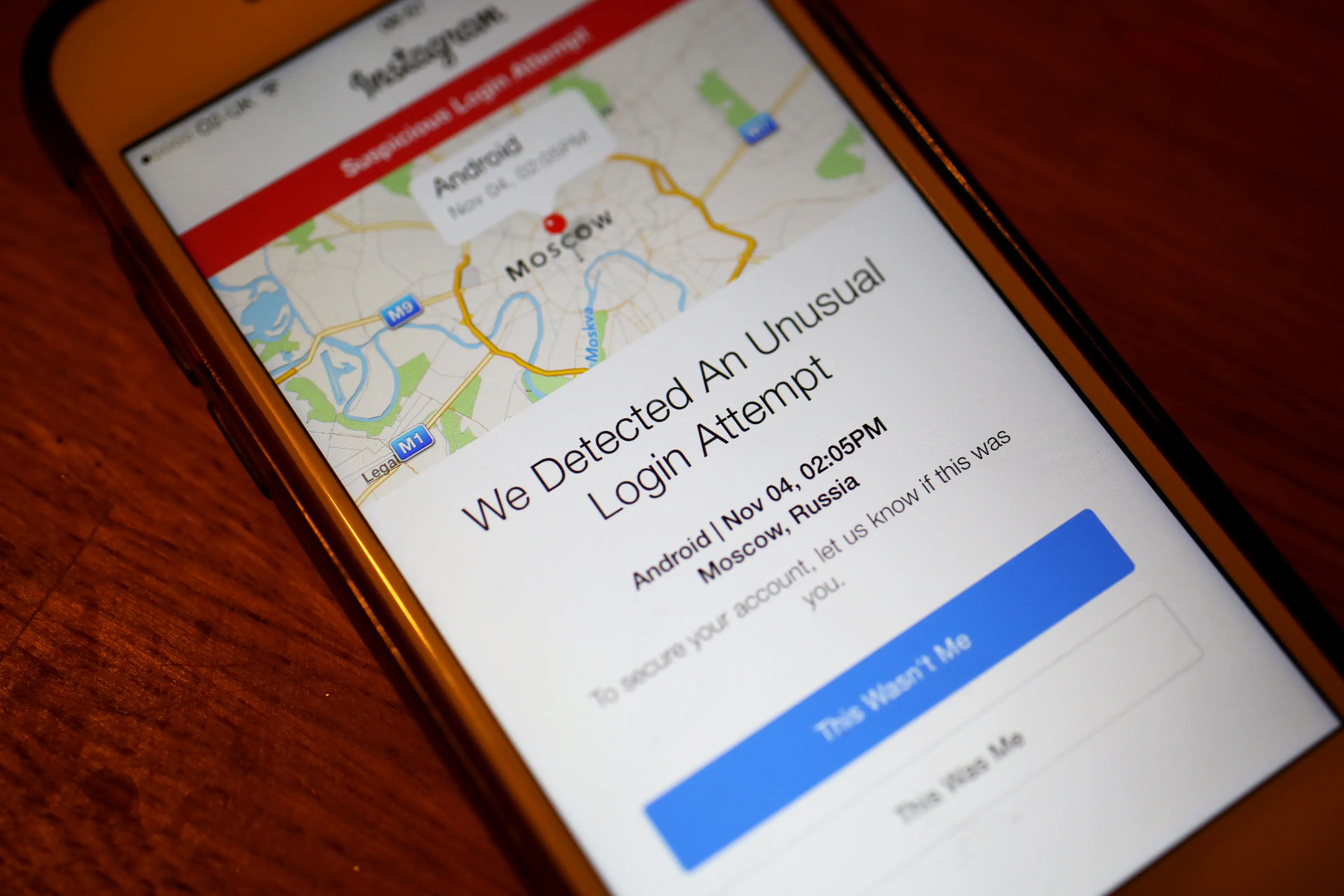
20 years ago, before the rise of the internet and smart devices, protecting yourself against crime was a much simpler game.
Someone could rob your house or your phone, but people – by and large – weren’t at risk of some sort of espionage-based crime that would have sounded at the time like something from a James Bond film.
Nowadays, we have to protect ourselves against all sorts of threats, while harbouring suspicions that companies or other parties might be listening to our every word or monitoring our every moment.
However, can criminals really hack into your phone and get access to the camera to watch what you’re doing?
Advert
Well, we had a chat with the National Cyber Security Centre (NCSC) to find out what the truth is, and what you can do to make sure that your devices are as secure as possible.

As you might already suspect, the simple truth is that people can get into your phone and get onto the camera, but you’d be unlucky if it happened to you.
That's not because it's not possible, but there are certainly threats that you could run into online that are more popular among criminals and therefore more important to prepare for.
You can take easy steps to protect yourself against cyber-crime, and you’d also be very unfortunate if you were among the very few people who actually get their camera hacked, but it can - and does - happen.
More likely, you could be victim to a type of attack that has been nicknamed a ‘sextortion’ attack.
That’s typically when the bad guys send you an email claiming to have information or content that is damaging or embarrassing for the victim.
Then, they ask for cash and threaten that it will be released online.
The experts at the NCSC recognise that this sort of thing does go on, but it’s unlikely that they do actually have the footage on you.
That’s not to say they definitely don’t, but the chances are that they’re just acting opportunity for financial gain.

Still, there are some really easy things you can do to protect your devices, and they work across anything you’ve got that connects to the internet, including smart cameras, phones, laptops, and smart speakers.
Firstly, and this should be something that we’re all aware of by now, is that you need to have a strong password.
Having a strong unique password is a great form of protection against any cyber-attacks.
Furthermore, turning on two-step authentication adds another vital layer of protection, so the NCSC advise that it should be used wherever possible.
If you’ve bought a device that comes with a stock password, change it as soon as you set up the device.
Criminal chancers could easily guess a password like ‘1234’ or ‘0000’ easily and gain access without even having to try.
A less well-known tip, but one that is equally as important, is to keep your devices as updated as possible.
When companies update their software, they also fix bugs and potential security problems that they have noticed within the system.
Keeping updated means that as many of those gaps are closed to anyone attempting to maliciously gain access.
What’s more, when the updates are released, it is often revealed what fixes have been found to improve security, alerting those who wish to exploit them to potential vulnerabilities.

They’re annoying, but next time you get asked to update, it’s best to just get it out of the way.
Or, set your device to auto-update and it will do it for you.
The next step to keep yourself safe online is to treat any message you’re not certain about with suspicion.
Phishing emails and messages can contain links that download malware onto your computer, potentially allowing criminals access to personal information, passwords, or other data on the device.
You can always forward anything you’re suspicious about to [email protected] in order to set the investigators to work.
If you think that you have been a victim, whether that is clicking on a link or otherwise, you can report it to the police at Action Fraud.
Topics: Crime, Technology